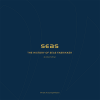The Persae of Aeschylus
The Persae is the oldest of surviving plays and its subject matter is unique in ancient drama, since it is concerned with a recent historical event, the defeat of the Persians at Salamis; yet before the publication of this work in 1960, there had been no edition suitable for university students and scholars. This major edition - the first to be attempted on such a scale - incorporated much material that former editions had neglected, including a number of textual suggestions and elucidations. In his introduction, Dr Broadhead assesses the Persae as a work of dramatic art, considers how far Aeschylus’ patriotism has coloured his presentation of the tragedy, discusses the possibility that the play is part of a tetralogy, and reviews the evidence for a Sicilian text. He also explains the principles followed in establishing the text, which is accompanied by select critical notes. There is a full-scale commentary, which takes account of the scholarship that was current when this volume was first published. The appendices form an important supplement, and include a conspectus of metres; notes on spirit raising, the tragic kommos, and Persian names; and an account of the battle of Salamis.
- Forlag: Cambridge University Press
- Utgivelsesår: 2009
- Kategori: Drama
- Lagerstatus: Ikke på lagerVarsle meg når denne kommer på lager
- Antall sider: 428
- ISBN: 9780521118095
- Innbinding: Heftet














